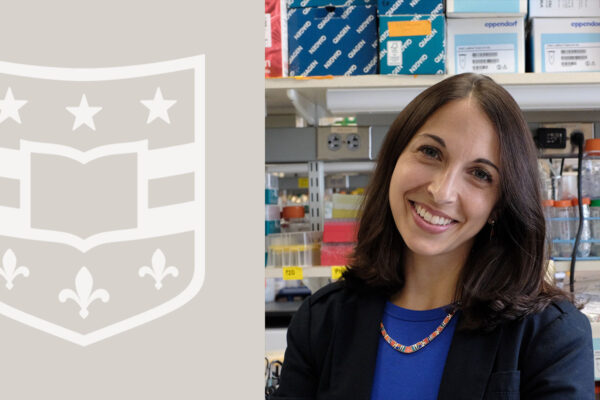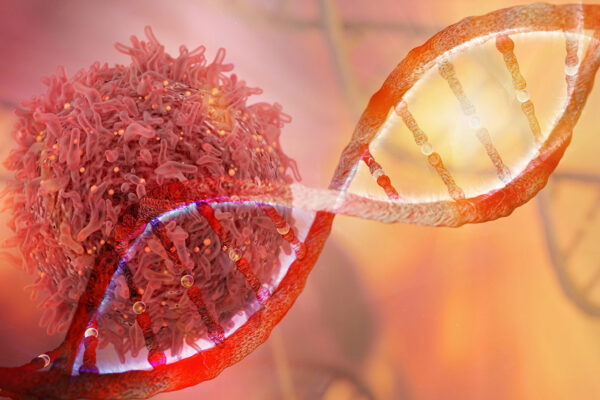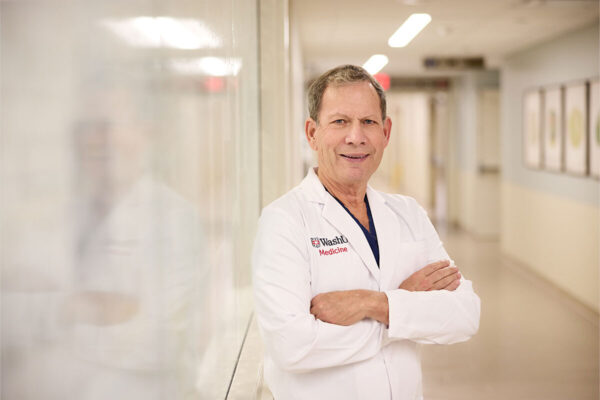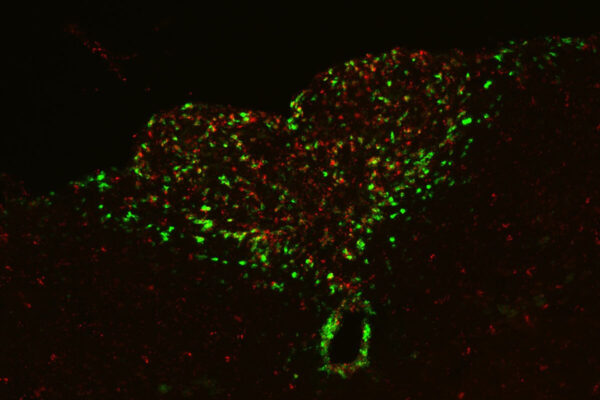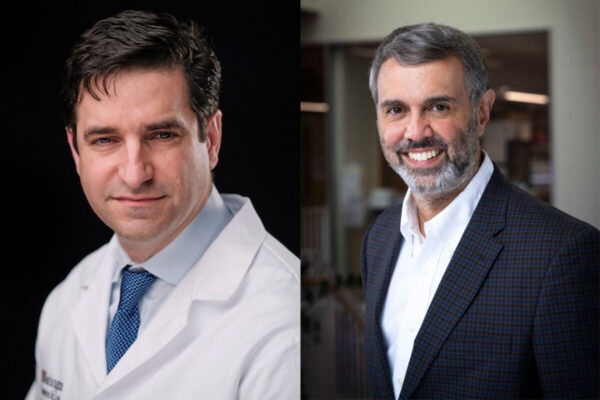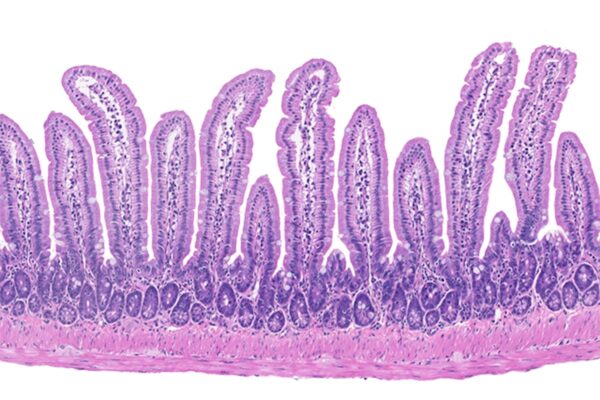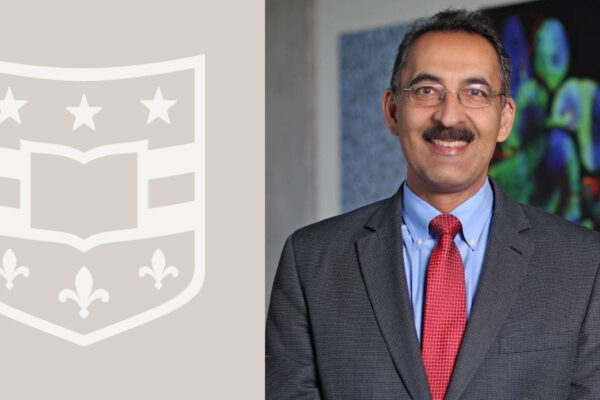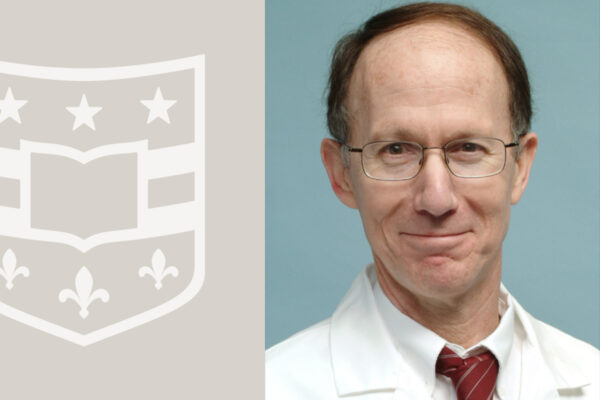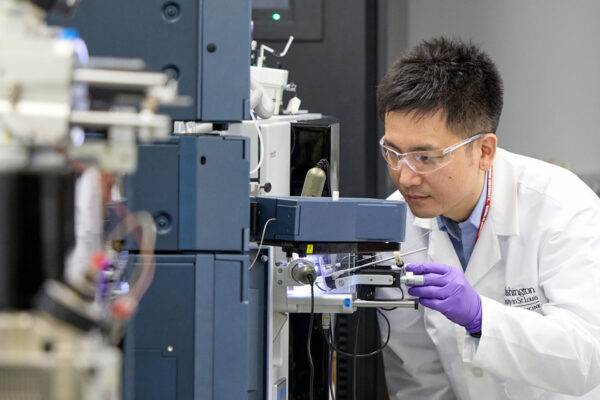Pollina honored for innovations in neuroscience
Elizabeth Pollina, an assistant professor of developmental biology at WashU Medicine, has received the 2025 MIND Prize from the Pershing Square Foundation.
Study sheds light on how inherited cancer mutations drive tumor growth
A new study led by WashU Medicine researchers takes a deep dive into inherited genetic mutations. The findings have implications for determining an individual’s inherited cancer risk and informing potential new strategies for prevention, early detection and treatment.
Alternative to hip replacement keeps aging athletes in the game
WashU Medicine surgeons led a long-term study that showed patients who received a hip resurfacing procedure maintained a higher level of athletic activity years after their surgery than those who received a total hip replacement.
Brain pathway links inflammation to loss of motivation, energy in advanced cancer
Researchers at WashU Medicine described, in mice, a brain pathway that connects the loss of motivation characteristic of advanced cancer to cancer-related inflammation and identified opportunities to block this pathway and restore motivation.
Leuthardt, Mitra selected as AIMBE fellows
WashU Medicine’s Eric C. Leuthardt, MD, and Robi Mitra, PhD, have been named fellows of the American Institute for Medical and Biological Engineering.
Baldridge receives Global Grant for Gut Health award
Megan Tierney Baldridge, MD, PhD, an associate professor in the Department of Medicine at WashU Medicine, received a $100,000 grant to explore the interactions between the viruses that infect bacteria, known as bacteriophages, and human intestinal epithelial cells.
Researchers find intestinal immune cell prevents food allergies
Researchers at WashU Medicine found that a small population of immune cells in the mouse intestine prevents allergic responses to food, suggesting that targeting such cells therapeutically could potentially lead to a new treatment for allergies.
Study uses body’s clock to deliver medication precisely when needed
Researchers at WashU Medicine have harnessed the internal circadian clock of the body to deliver medication for an inflammatory illness precisely when it was most needed.
Immune booster reduces secondary infections in COVID-19 patients
A clinical trial led by Richard S. Hotchkiss, MD, a professor of anesthesiology at WashU Medicine, has found that treating critically ill COVID-19 patients with an immune-boosting protein reduces life-threatening secondary infections, a major cause of death in such patients.
Highly accurate blood test diagnoses Alzheimer’s disease, measures extent of dementia
A blood test for Alzheimer’s disease developed by researchers at WashU Medicine and Lund University not only aids in the diagnosis of the neurodegenerative condition but also indicates how far it has progressed.
View More Stories
